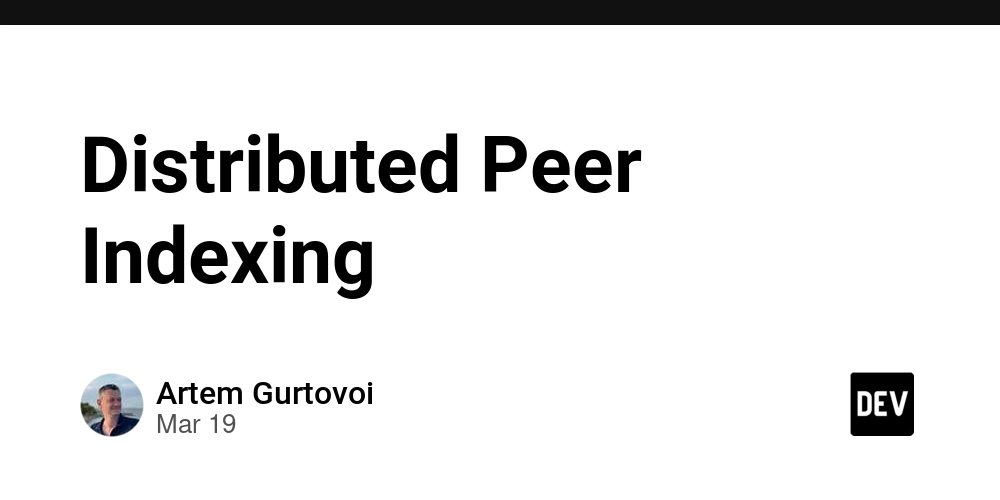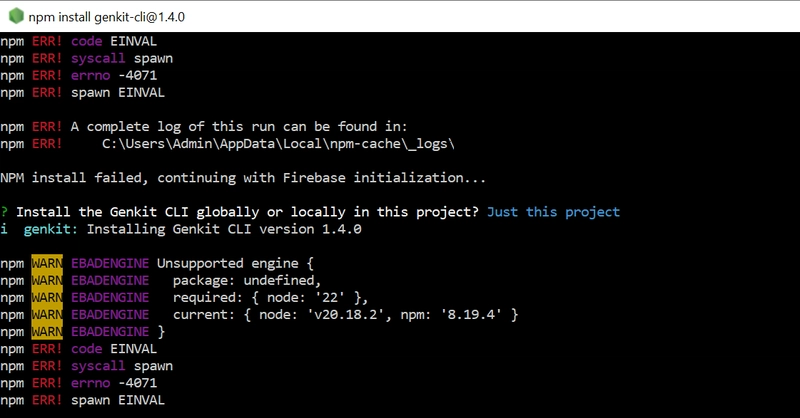Distributed Peer Indexing
Problem Modulo partitioning algorithm taks.id % replicas == index requires knowing the number of task processing instances running in the cluster and the own index of the current instance. Forces Static configuration is not an option (due to dynamic scaling / failover). In a distributed system, there is no concept of a global current time. Solution An algorithm that emits (index, replicas) once per interval seconds, using a common Redis key and atomic increment. Define the following parameters: name: a name of the task processing (e.g. mail-sender) interval: indexing interval that is deliberately greater than the expected clock skew among instances At the start of each interval in Unix epoch: Calculate an ordinal number of the current interval: number = ceil(now() / interval) Compose a key as {name}:{number} Atomically increment a key in Redis (INCR) If index is defined (see 5) Get the value of the previous key {name}:{number-1} as replicas If the replicas is defined, emit (index, replicas) algorithm result Store the response (3) in index. Safe index transition If the index or replicas changes, the algorithm consumer must stop consuming new tasks and execute safe index transition, to prevent task duplication or loss. The transition can be implemented in a manner similar to the described algorithm, using a dedicated {name}:transition key. However, this process is considered outside the scope of this document. Extension If the system clocks are too precisely synchronized (skew is less than a round-trip time to Redis), this may result in continuous index transitions. To mitigate this, the algorithm can be extended with a random delay: Before starting the algorithm, define a random constant clock skew, significantly smaller than interval: skew = random() * (interval / 2) Start the algorithm at each interval + skew. Caveats The first result will become known between interval and interval × 2 seconds.

Problem
Modulo partitioning algorithm taks.id % replicas == index requires knowing the number of task processing instances running in the cluster and the own index of the current instance.
Forces
- Static configuration is not an option (due to dynamic scaling / failover).
- In a distributed system, there is no concept of a global current time.
Solution
An algorithm that emits (index, replicas) once per interval seconds, using a common Redis key and atomic increment.
Define the following parameters:
-
name: a name of the task processing (e.g.mail-sender) -
interval: indexing interval that is deliberately greater than the expected clock skew among instances
At the start of each interval in Unix epoch:
- Calculate an ordinal number of the current interval:
number = ceil(now() / interval) - Compose a
keyas{name}:{number} - Atomically increment a
keyin Redis (INCR) - If
indexis defined (see 5)- Get the value of the previous key
{name}:{number-1}asreplicas - If the
replicasis defined, emit(index, replicas)algorithm result
- Get the value of the previous key
- Store the response (3) in
index.
Safe index transition
If the index or replicas changes, the algorithm consumer must stop consuming new tasks and execute safe index transition, to prevent task duplication or loss.
The transition can be implemented in a manner similar to the described algorithm, using a dedicated {name}:transition key. However, this process is considered outside the scope of this document.
Extension
If the system clocks are too precisely synchronized (skew is less than a round-trip time to Redis), this may result in continuous index transitions.
To mitigate this, the algorithm can be extended with a random delay:
- Before starting the algorithm, define a random constant clock skew, significantly smaller than
interval:skew = random() * (interval / 2) - Start the algorithm at each
interval + skew.
Caveats
- The first result will become known between
intervalandinterval × 2seconds.




















































%20Abstract%20Background%20112024%20SOURCE%20Amazon.jpg)






















































































































![[The AI Show Episode 142]: ChatGPT’s New Image Generator, Studio Ghibli Craze and Backlash, Gemini 2.5, OpenAI Academy, 4o Updates, Vibe Marketing & xAI Acquires X](https://www.marketingaiinstitute.com/hubfs/ep%20142%20cover.png)
























































































































































































































































-Nintendo-Switch-2-–-Overview-trailer-00-00-10.png?width=1920&height=1920&fit=bounds&quality=80&format=jpg&auto=webp#)





















_Anna_Berkut_Alamy.jpg?#)













































































































![YouTube Announces New Creation Tools for Shorts [Video]](https://www.iclarified.com/images/news/96923/96923/96923-640.jpg)





































































![[Weekly funding roundup March 29-April 4] Steady-state VC inflow pre-empts Trump tariff impact](https://images.yourstory.com/cs/2/220356402d6d11e9aa979329348d4c3e/WeeklyFundingRoundupNewLogo1-1739546168054.jpg)





























































